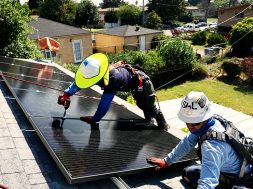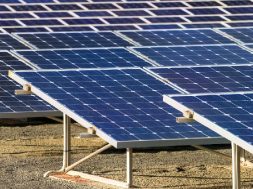
Mumbai college installs 34 solar panels, cuts down electricity bill by 40%
The National Education Society (NES)’s Ratnam College at Bhandup became the first educational institute in north-east Mumbai to install solar power plant on its premises. The college spent Rs7.10 lakh on the project that was inaugurated on Tuesday. The 34 solar panels, each capable of producing 300 watt power (Wp), can collectively produce 40 kilowatt hour (kWh) electricity daily and 14,600 kWh annually. The power generated by the plant is expected to reduce the institute’s electricity bill by 40%. “The monthly electricity bill of the institute is expected to drop from Rs2 lakh to Rs1.2 lakh. NES is the first one to inaugurate the solar power project at Ratnam College. This is a lifelong initiative and the entire complex will be benefit from it eventually,” said Dr R Varadarajan, founder-president, NES Saraswathi Vidya Bhavan (SVB) Group. “Owing to the frequent power cuts, we are keen on installing this system at our Dombivli complex.”
Students said they want to understand the concept of solar power in detail and urge residential societies to adopt it. “Creating sustainable energy is an effective step towards environment protection and we are very happy to be a part of this institute,” said Irishya Satish, a second-year BCom student. The solar project was inaugurated by BJP MP Kirit Somaiya. “We are running a campaign in north-east Mumbai for educational institutes and housing societies to harness solar power. Through my MP fund, 25 educational institutes will have solar power plants by year-end. Ratnam College is the first one,” he said. He added that 30% subsidy from the government should help housing societies to shift harness solar power. “As it reduces electricity bill, the cost of installing a solar power plant is recovered in five years and the expenses thereafter are negligible,” said Somaiya.
EXPERTSPEAK
“The current government is focusing on large-scale solar projects to meet energy demands for an estimated time frame. Rather, like Germany, if citizens are encouraged to produce their own electricity through either wind or solar, it will not only benefit people monetarily but will bring down our carbon footprint drastically,” said Jairam Ramesh, Congress leader and former environment minister.















